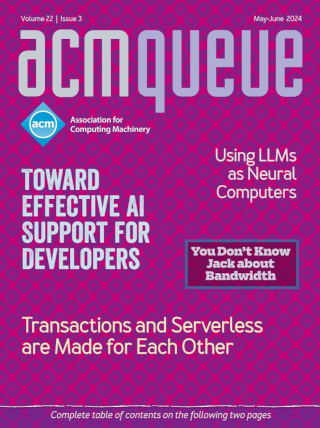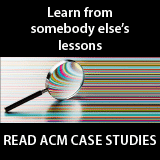
How Will Astronomy Archives Survive the Data Tsunami?:
Astronomers are collecting more data than ever. What practices can keep them ahead of the flood?
Astronomy is already awash with data: currently 1 PB of public data is electronically accessible, and this volume is growing at 0.5 PB per year. The availability of this data has already transformed research in astronomy, and the STScI now reports that more papers are published with archived data sets than with newly acquired data. This growth in data size and anticipated usage will accelerate in the coming few years as new projects such as the LSST, ALMA, and SKA move into operation. These new projects will use much larger arrays of telescopes and detectors or much higher data acquisition rates than are now used. Projections indicate that by 2020, more than 60 PB of archived data will be accessible to astronomers.
Postmortem Debugging in Dynamic Environments:
Modern dynamic languages lack tools for understanding software failures.
Despite the best efforts of software engineers to produce high-quality software, inevitably some bugs escape even the most rigorous testing process and are first encountered by end users. When this happens, such failures must be understood quickly, the underlying bugs fixed, and deployments patched to avoid another user (or the same one) running into the same problem again. As far back as 1951, the dawn of modern computing, Stanley Gill wrote that "some attention has, therefore, been given to the problem of dealing with mistakes after the programme has been tried and found to fail." Gill went on to describe the first use of "the post-mortem technique" in software, whereby the running program was modified to record important system state as it ran so that the programmer could later understand what happened and why the software failed.
Wanton Acts of Debuggery:
Keep your debug messages clear, useful, and not annoying.
Dear KV, Why is it that people who add logging to their programs lack the creativity to differentiate their log messages? If they all say the same thing—for example, DEBUG—it’s hard to tell what is going on, or even why the previous programmer added these statements in the first place.





